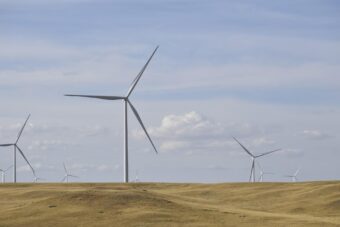The wind energy sector in Europe faces significant challenges and opportunities as it prepares for substantial expansion over the next six years. With ambitious climate goals and the need to increase energy independence, the European Union plans to boost wind energy capacity from the current 225 GW to 425 GW by 2030. This growth has major implications for the European supply chain and labor market, according to a statement from WindEurope.
According to the latest estimates, the wind industry, which currently employs approximately 370,000 people, needs to expand to 600,000 jobs by the end of the decade. This means over 200,000 new workers must be hired and trained in a relatively short timeframe. However, the European industry faces a serious skills gap that could slow down the green transition.

On the path to green transformation, Europe confronts three interconnected challenges: the urgent need to reduce greenhouse gas emissions to mitigate the effects of climate change, strengthen energy security by reducing reliance on imported fossil fuels, and enhance industrial competitiveness through the use of cheap and domestic renewable energy sources. Wind energy plays a crucial role in addressing all these challenges, enabling a reliable and sustainable energy transition.
To tackle the workforce shortage, WindEurope, Europe’s leading wind energy association, is already involved in a range of initiatives aimed at adapting educational systems to meet the needs of the green industry.
The European Commission has announced two strategic plans: the EU Action Plan for Vocational Education and Training (VET), aimed at improving the quality and accessibility of technical education, and the Strategic Action Plan for STEM Disciplines, focused on encouraging more young people to pursue careers in science, technology, engineering, and mathematics.
More:
- Germany Acts to Ensure Level Playing Field and Data Security in Wind Energy
- Europe’s Wind Supply Chain Continues Ramp Up to Meet EU Targets
- EU Member States Must Take Urgent Action on NECPs and Overriding Public Interest
What Skills Will Be in Demand?
Attracting young people and providing them with adequate education and training is essential for the wind industry. The jobs to be created include engineers, wind turbine maintenance technicians, logistics experts, and project managers. Beyond technical skills, emphasis will also be placed on digital competencies, problem-solving abilities, and teamwork.
These new roles represent a significant opportunity for young people across Europe. By investing in education and training, the wind industry can become an attractive career option, offering both financial security and a meaningful contribution to preserving the planet.
WindEurope emphasizes that aligning educational programs with the actual needs of the industry must be a priority, and collaboration between educational institutions, industry, and governments is key to the success of this endeavor.



